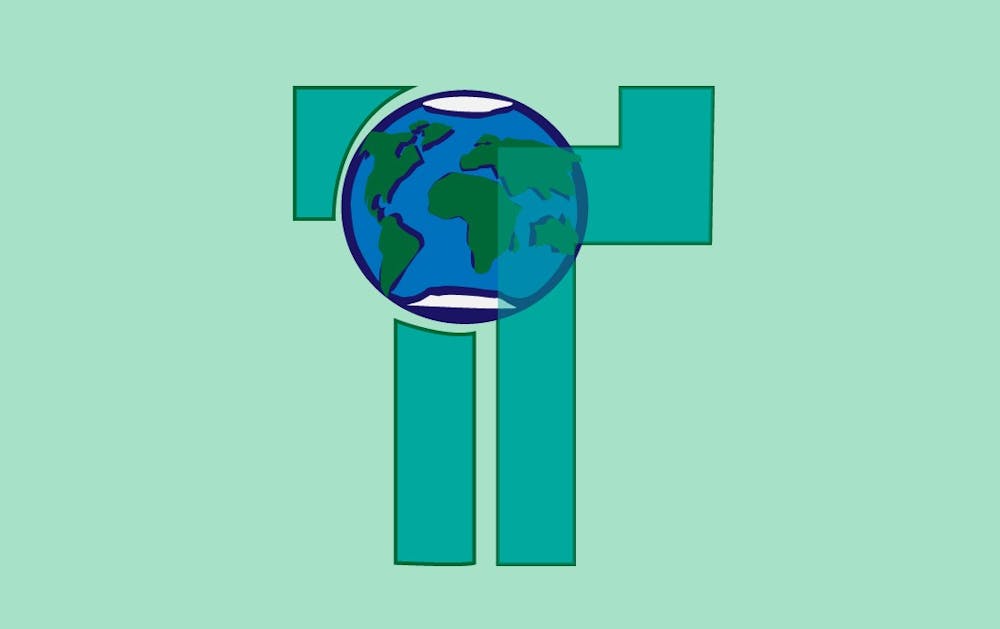Tempe became Arizona's second city to approve a plan to address climate change.
Tempe’s first Climate Action Plan was approved by the Tempe City Council last month and is a set of goals and actions that establishes the city's plans for climate action.
The plan also addresses the city's goals through three areas: transportation, energy and energy efficiency and extreme heat.
READ MORE: Tempe's Sustainability Commission aims to alter climate action culture in the city
Its development began in 2016 after the city joined the Global Covenant of Mayors — a coalition of cities that are working toward long term goals that address climate change.
However, Tempe's Sustainability Commission, Tempe City Council and other local leaders saw room for improvement in the plan. Other cities with climate action plans, like Portland, Oregon, continuously update their plans to account for emerging issues.
Tempe’s sustainability leaders are looking ahead at a CAP 2021 Update, which will tackle equity and engagement in frontline communities. Frontline communities are disproportionately affected by climate change.
The CAP 2021 Update was addressed in the draft of the Climate Action Plan before its approval.
Braden Kay, director of sustainability for the city of Tempe, said Tempe City Council requested the Sustainability Commission focus on equity in the plan’s updates.
Tempe’s equity and inclusion manager, Jonae Harrison, and Kay created an equity review of the plan. Tempe citizens also gave feedback on the plan in open houses and forums, Kay said.
“We went and talked about extreme heat work (at the forums),” Kay said. “Not only is it important for us to invest in our urban forestry program, but we need to be making sure we’re planting trees in areas that have less trees and higher concentrations of low income Tempe residents.”
Kay said Tempe is also looking at energy efficiency work using revolving loan funds, RLFs, which are pools of capital that can be used for clean energy project loans.
RLFs are used for both small businesses and for Tempe’s housing programs. Through the fund, people who use Tempe’s housing programs could have access to money for energy efficiency upgrades for their homes.
Focusing on transportation in Tempe has also been a priority for the update, Kay said.
“Making sure that we’re considering bus rapid transit and we’re looking at ways to design streets for pedestrians, bikes and non-car owners, in addition to cars, is a really important way of addressing equity and transportation,” Kay said.
Thad Miller, an assistant professor for ASU's School for the Future of Innovation in Society, focuses on sustainability and infrastructure design.
He said solving the transportation issues of Tempeans is all about how local governments, communities and industries are able to work together and develop new technologies.
“We have autonomous vehicles on the road already, including in Tempe,” Miller said. “We should think about how this could help issues of equity.”
Lauren Withycombe Keeler, an assistant professor at the School for the Future of Innovation in Society who helped develop the CAP, said one of her goals for the 2021 update is focusing on partnerships between universities and cities for addressing sustainability and resiliency challenges.
“(We are thinking about) how cities and universities can work today in new ways, focused on big, long term goals and ... the needs and values of different organizations,” Keeler said.
Student engagement is essential for climate action everywhere, especially in Tempe and the greater Phoenix Metropolitan Area because there is so much work to do, Keeler said.
“There is an opportunity to leverage the compassion and commitment to climate action and knowledge and skills of our students in the development of the 2021 Update,” Keeler said. “The student activism that’s out there is ... pushing the boundaries of the transformational potential of climate action.”
Brian Mecinas, a freshman studying political science and advocacy director for AZ Youth Climate Strike, said over the past few months he and other student advocates have had meetings with Kay and Tempe Vice Mayor Lauren Kuby and attended open houses about the Climate Action Plan.
Students have had input on the plan and want the update to prioritize climate justice and focus on other issues that intersect with climate issues, Mecinas said.
READ MORE: City of Tempe continues work with ASU to craft climate action plan
“We were really strongly advocating (with) Vice Mayor Lauren Kuby for an emphasis on the (resiliency hub) that was not a part of the Climate Action Plan," Mecinas said. “It was mentioned briefly in the plan, but I think it should be more flushed out in the 2021 Update.”
Mecinas said resiliency hubs would be public areas like churches, fire stations or other community areas that are accessible via public transportation. If the power went out in areas at times of extreme heat, residents in marginalized communities can go to these places to access the resources they need.
Overall, student advocates want people to understand the urgency of the climate crisis, Mecinas said.
“(Climate change) is a bit more urgent with people my age, as well as even younger,” Mecinas said. "(AZ Youth Climate Strike) is not just something we’re a part of for fun. The reality is it’s a fight for our lives and we’re doing what we can.”
Reach the reporter at tmlane3@asu.edu and follow @tmflane on Twitter.
Like The State Press on Facebook and follow @statepress on Twitter.




